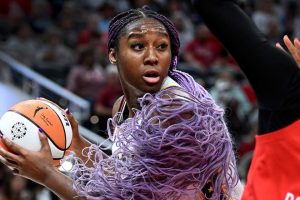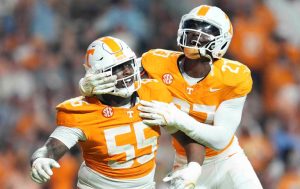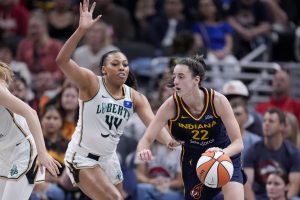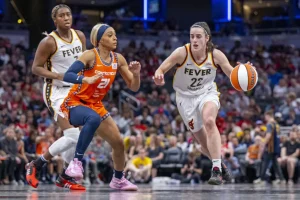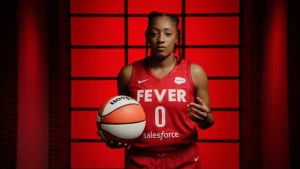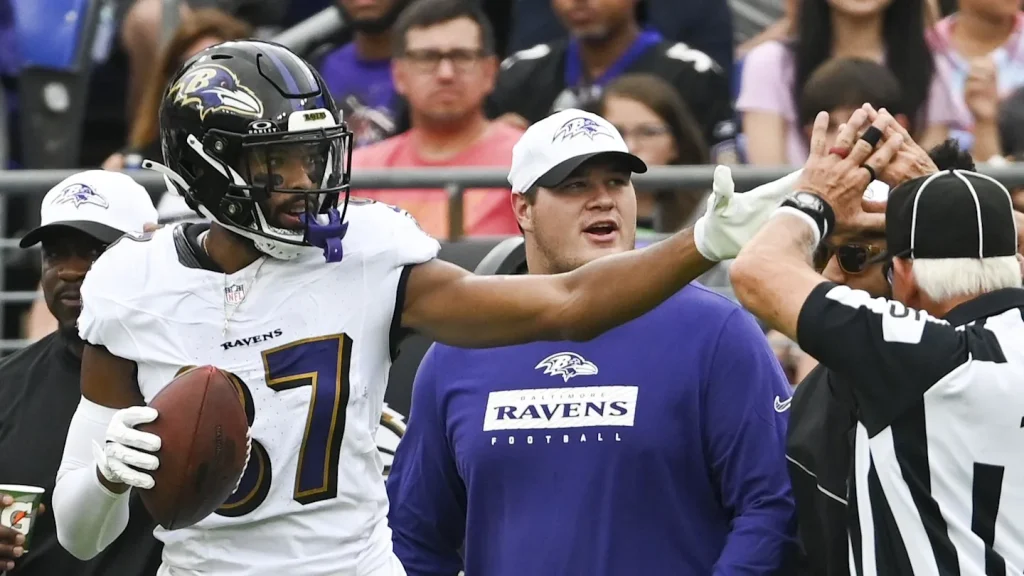
How the New Orleans Super Bowl blackout almost changed the history of the Ravens, 49ers, and NFL
The 2013 Super Bowl between the Baltimore Ravens and the San Francisco 49ers is remembered not only for the thrilling 34-31 victory by the Ravens but also for the unusual and dramatic moment when the stadium lights went out for 34 minutes in the third quarter. This unexpected event, referred to as the Super Bowl XLVII blackout, has gone down in NFL history as one of the most bizarre and memorable incidents in sports. However, beyond its immediate shock value, the blackout could have had a profound impact on the game itself, the teams involved, and even the larger trajectory of the NFL.
The Setting: Super Bowl XLVII
Super Bowl XLVII was a historic clash between two iconic NFL franchises, the Baltimore Ravens and the San Francisco 49ers. The Ravens were led by veteran quarterback Joe Flacco and head coach John Harbaugh, while the 49ers were helmed by the up-and-coming quarterback Colin Kaepernick and head coach Jim Harbaugh, John’s brother. The stage was set for a dramatic, high-stakes encounter.
Both teams had impressive rosters, and the game promised to deliver high-level football. The Ravens entered the game with one of the NFL’s most potent offenses, led by Flacco’s deep passing game and the veteran presence of wide receiver Anquan Boldin. Meanwhile, the 49ers were an extremely well-rounded team, known for their strong defense, physical running game, and the dual-threat capabilities of Kaepernick, who had taken over the starting quarterback job after a mid-season injury to Alex Smith.
The Ravens jumped out to an early lead, with Flacco throwing a pair of touchdown passes, including a memorable 13-yard toss to Boldin and a long 56-yard pass to Jacoby Jones. The Ravens’ offense was clicking on all cylinders, while the 49ers struggled to keep pace in the first half. The Ravens led 21-6 at the break, and it seemed like they were on their way to a comfortable win.
The Blackout
However, as the second half began and the Ravens looked poised to continue their dominance, something unusual happened. With the Ravens leading 28-6 in the third quarter, the lights in the Superdome, the home stadium of the New Orleans Saints, suddenly went out. For a period of 34 minutes, the stadium was plunged into darkness, causing a delay in the game.
The cause of the blackout was later revealed to be an issue with the electrical system in the stadium, specifically a piece of equipment that malfunctioned and triggered a power surge. While this incident was an inconvenience to the fans and players alike, it also became a defining moment in the game and, ultimately, one that almost changed the course of history for both teams involved.
The Impact on the Game: The Ravens’ Momentum Shift
At the time of the blackout, the Ravens were in control of the game. They had just scored another touchdown, extending their lead to 22 points. But the power outage did something unexpected – it completely disrupted the rhythm of the game and, in the process, took the wind out of the Ravens’ sails.
When the game resumed, the 49ers came out with renewed energy, as if the blackout had allowed them to regroup and re-energize. Kaepernick, who had been inconsistent up until that point, began to find his footing. The 49ers scored 17 unanswered points, bringing the game to a more competitive 28-23 score. A major shift in momentum had occurred, and suddenly, the Ravens found themselves on the backfoot.
The most notable of these changes was the 49ers’ special teams play. After the blackout, the 49ers’ kickoff returner, Ted Ginn Jr., came close to breaking a return for a touchdown, and the defense started to pressure Flacco, forcing him into some uncharacteristic mistakes. The Ravens’ offensive line, which had been dominant earlier, was suddenly under pressure, and Flacco found himself under siege from the 49ers’ front seven.
The 49ers’ defense, which had allowed Flacco to throw freely in the first half, began to adapt. They put together some key stops, and the offense capitalized on the opportunities. The sudden shift in the game’s dynamics raised questions about whether the blackout had indeed played a pivotal role. Could the Ravens have held on to their lead if the game had not been interrupted? The answer is impossible to know for certain, but the way the game unfolded after the blackout certainly suggests it had a significant impact on both teams.
The 49ers’ Comeback and the Ravens’ Resilience
The power outage ultimately led to one of the most compelling Super Bowl narratives ever. The 49ers, despite trailing by 22 points, were now within striking distance, and with Kaepernick continuing to make plays with his arm and legs, they were beginning to feel more and more confident.
However, the Ravens were not about to let their Super Bowl slip away that easily. The resilient leadership of Flacco, combined with the veteran presence of players like Ray Lewis, Ed Reed, and Anquan Boldin, kept the team focused. After the 49ers narrowed the gap to 31-29, it came down to a final defensive stand by the Ravens. On the 49ers’ final drive, with just over two minutes left, the Ravens’ defense stood tall and thwarted a goal-line stand, forcing a turnover on downs and sealing the victory.
Flacco was named Super Bowl MVP, thanks to his impressive performance in the first half, but the game would forever be remembered for the blackout, the momentum shift it caused, and the 49ers’ near-complete comeback.
The Long-Term Consequences: The Ravens’ Legacy
The blackout itself may have been just a momentary disruption in the game, but its long-term effects on the teams involved and the NFL as a whole were significant.
For the Baltimore Ravens, Super Bowl XLVII marked the end of an era. The team was already in transition, with Ray Lewis announcing his retirement after the game, signaling the end of the Ravens’ legendary defense. The franchise was about to begin a rebuilding phase, and the victory was a fitting sendoff for Lewis, who had led the team to two Super Bowl titles in his career.
Had the blackout caused a loss for the Ravens, it might have tainted their championship run. The idea of blowing such a significant lead would have been remembered as a massive choke job, one that would have overshadowed Flacco’s strong postseason performance. Instead, the Ravens’ defense and special teams managed to hold off the 49ers, ensuring their victory was seen as a testament to the team’s resilience rather than a case of squandering a big lead.
Flacco, in particular, benefited greatly from the Super Bowl victory. His performance, especially in the first half, helped cement his reputation as one of the NFL’s elite quarterbacks. It also paved the way for his enormous contract extension in the offseason, which, at the time, made him one of the highest-paid quarterbacks in the league. Had the Ravens lost the game, Flacco’s career trajectory might have been very different. While he would have still been respected for his overall body of work, a Super Bowl loss after such a commanding lead would have raised questions about his ability to perform under pressure.
The 49ers’ Missed Opportunity
For the San Francisco 49ers, the blackout and their subsequent near-comeback was both a blessing and a curse. On one hand, the team showed tremendous resolve and fight, bouncing back from what appeared to be a crushing deficit. The performance of Kaepernick in the second half, particularly in his ability to make plays with his legs, offered a glimpse into the future of the NFL at the quarterback position: a dual-threat player who could beat defenses both through the air and on the ground.
However, the 49ers’ failure to complete the comeback also left a significant mark on the team’s history. The loss to the Ravens was Kaepernick’s first Super Bowl appearance, and it would be a long time before the 49ers returned to the big game. The near-comeback was a bittersweet moment, as the team ultimately fell short of claiming their sixth Super Bowl title.
The loss also raised questions about coaching decisions, especially on the final drive. Jim Harbaugh’s decision to go for a fourth-and-goal attempt rather than take a field goal with under two minutes remaining was controversial. Ultimately, the Ravens’ defense stuffed the 49ers’ offense on that play, and the Ravens held on for the win. Had the 49ers tied the game, it’s possible the momentum shift from the blackout would have led to an entirely different ending.
The NFL’s Response
In the aftermath of the blackout, the NFL took a hard look at how the event was handled. The Superdome had a long history of electrical issues, and this incident led to increased scrutiny of the stadium’s infrastructure. The league later took steps to ensure that the risk of a similar blackout happening again was minimized. The event also sparked a larger conversation about the potential for technology to impact the game, from the use of replay systems to the impact of stadium infrastructure failures.
In terms of its impact on the NFL’s future, the blackout also served as a reminder that anything can happen during a game. Despite all the preparation and planning, moments of chaos and unpredictability can change the course of a contest. The blackout highlighted how a single disruption can shift the tide of a championship game and reminded the NFL that games are sometimes decided by forces beyond a team’s control.
The Super Bowl XLVII blackout may have been a brief moment in time, but its impact on the game was undeniable. While it didn’t directly determine the outcome, it played a crucial role in the dramatic shift in momentum that nearly allowed the 49ers to complete an improbable comeback. For the Ravens, it was a sign of resilience and perseverance, and their victory marked the culmination of a championship run that would shape the franchise’s future. For the 49ers, the loss was a missed opportunity, one that would linger as they struggled to return to the Super Bowl in the following years.
Ultimately, the blackout remains a fascinating moment in NFL history, a bizarre occurrence that almost changed the course of history for two teams, the outcome of the game, and the trajectory of the league.
